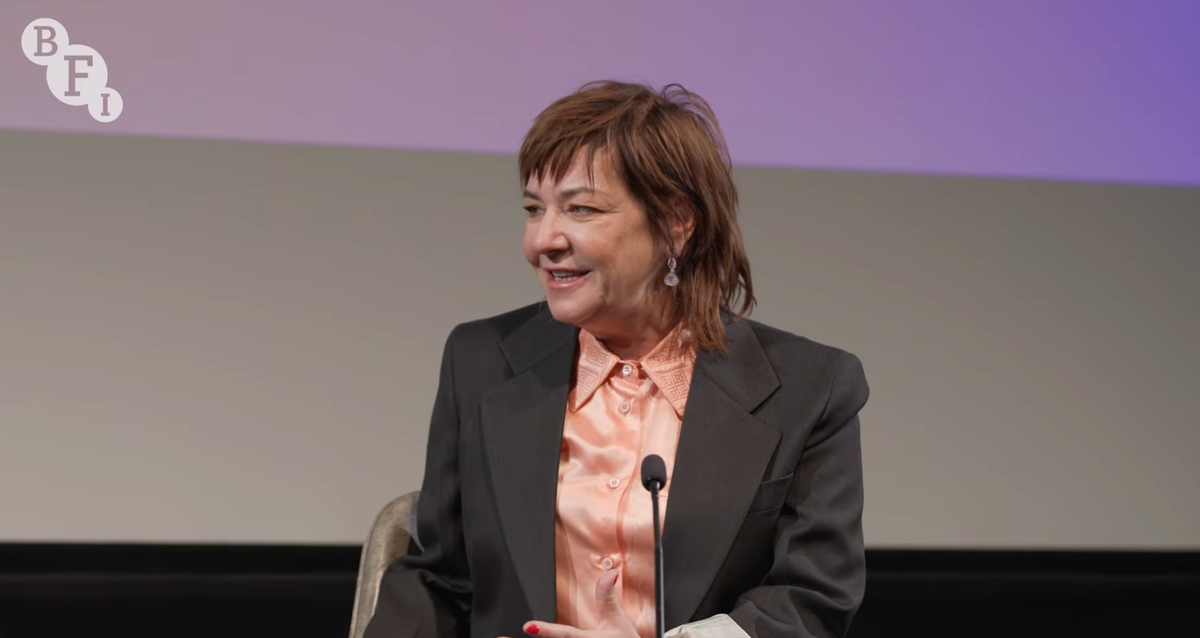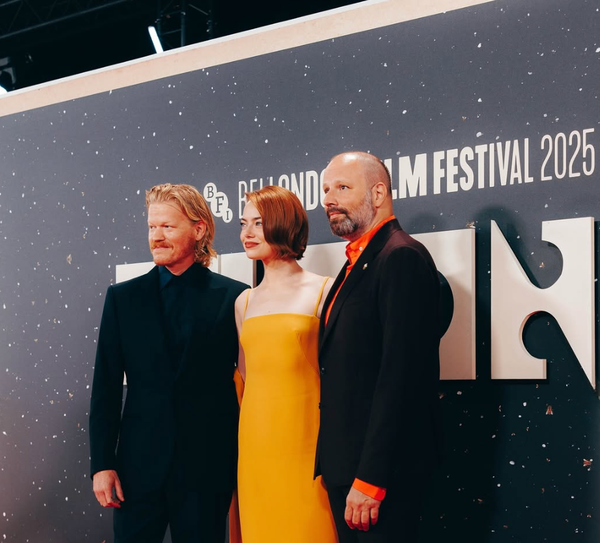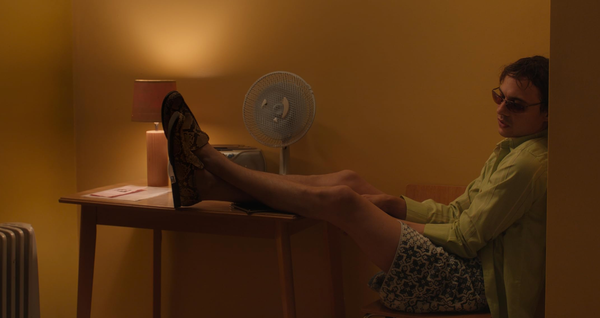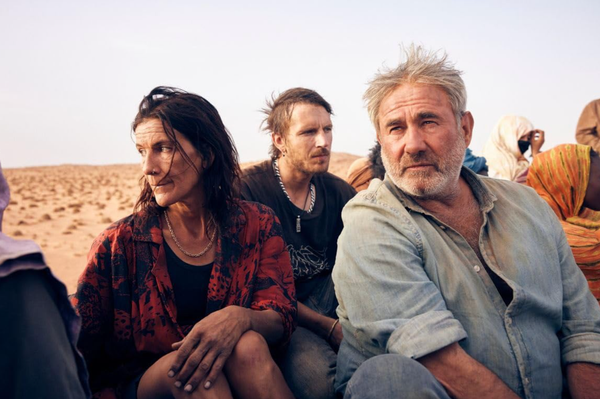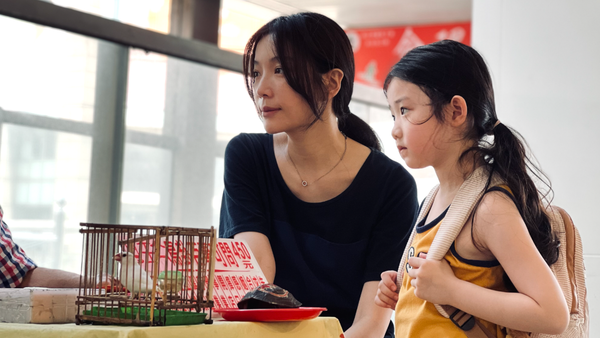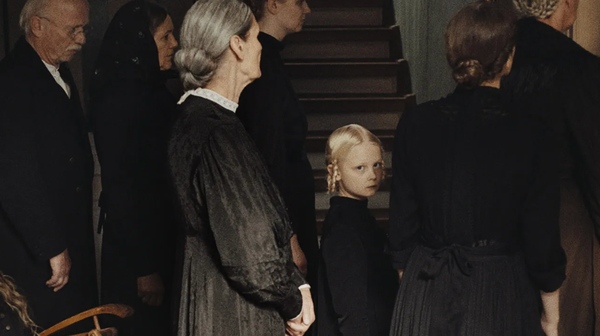The auteur director behind Die My Love sits down with our Festival Correspondent Shannon Cotter to talk Cannes, Jennifer Lawrence, and the visual look of one of 2025’s most daring films.
SC: You have said before that the reactions at Cannes are almost bigger prizes than the awards themselves. I was actually at the premiere at Cannes a few months ago and the reaction to Die My Love during the premiere and after was phenomenal. What is it like to get that response in a room full of industry people and cinephiles?
LR: You know, it is funny. The whole time I was watching the film at Cannes, because it is one of the biggest theatres, I was like “would we change that in the mix? Maybe we should re-edit that bit.” I was looking at it as a filmmaker, which was quite liberating because sometimes Cannes can be so overwhelming. I think my mind went straight to the film because we were still making tweaks in the edit and the mix, so it was actually quite good that I was in that frame of mind because Cannes can be brutal. But it seemed like people really responded. It is quite a ride, this film, and that was the first time it was let out into the world.
SC: You have said that it is important you are picky when choosing your next project if you are to spend a number of years with it. Why was Die My Love the right project for you?
LR: Jennifer Lawrence sent me the book but actually I had to see if I could do it. Because it is really interesting subject matter but it was a complicated adaptation. I always had the book as a jumping off point anyway but I had to find my way into it, you know. I wanted to look at other aspects as well and I saw a bit of a love story too. I do think Jackson loves her even though he does not get her.
SC: Jennifer Lawrence is wonderful to watch on screen. What was it like working with her as a collaborator?
LR: It was interesting. She was really keen to work with me and it was always conversations between us. It is not rehearsal for me, it is always the conversation. So you just have to find your way in and you need to know that you are on the same wavelength. I think she trusted me and went places with me that she would not usually. She was bold, she was brave, but so like the character, I think.
SC: There have been many comparisons of her performance to Gena Rowlands’ in A Woman Under the Influence, and what I really love about your work is I feel you capture the naturalism of Cassavetes but also have the beautiful frames of Tarkovsky. Were either of them an influence on this film?
LR: I very much remember seeing A Woman Under the Influence. I was on my own in Spain writing Morvern Callar in quite a creepy house and I happened to have brought it along with me. I remember being absolutely blown away by it and I have the original poster.
SC: No way!
LR: So I did see parallels but also I saw this kind of woman who is very unapologetic in her unravelling. I mean, films are different, you know. This is its own beast, but I think there are some parallels.
SC: One of my favourite scenes in Die My Love is when Grace meets a young woman who is a cashier and she is very blunt about getting the conversation over with, to say the least. Though it is a very awkward and funny scene, it feels as if there is an element of relatability to it. Does it interest you, stripping back social norms in that sense?
LR: Yes, I think one of the things I found interesting about Grace is she gives very much the unvarnished truth. It is a kind of inappropriate thing, but there is something liberating about that, you know. I was never trying to make her this empathetic figure, but I think she is relatable and I wanted to make it funny. I definitely think that was important for me, that I had the light in the dark. But yes, I loved it. I really like that scene too.
SC: Grace is obviously struggling with a creative block in the film. I was wondering what your view on them is and how you deal with them, because often it is like you have all this pent-up energy you cannot get out.
LR: I guess Grace’s life has sort of changed. She is stuck in this house, she is a mother. And then there is sex, they are not having it.
I think there will be blocks and you have to work your way out of it yourself, but she cannot work her way out of it because she feels so trapped. Fixing a block, for me, sometimes you have a project you love and it is great but it is hard to make or it takes ages and then that gives you another block. I think you have just got to be true to yourself. The more true to yourself you are, the more I think you will work your way out of that block.
"If you do not go with what is in your heart, that is failure."
SC: I wanted to ask about the visual look of the house because. It was a character in itself. What was your vision in creating it?
LR: Thank you. That was something that I was quite aware of, that she is going to be in this kind of box for a while, this trap, and so it became important. She is almost hearing things like rats scurrying upstairs and there is a set of scenes where she is a wild animal trapped in this place. I set designed a look with my production designer, Tim Grimes, and it dictated the frame in a way. It was shot on location, but it was quite a square house so I ended up going with the academy ratio and then I started experimenting with colours and stuff as she unravels, what the palette would be with the DOP Seamus McGarvey. It was an intention to make it feel like the house is somehow like the beginning of the end. The film begins with it, you know, there is optimism, and then it ends with it as well.
SC: A quick personal question. You said a number of years ago your biggest fear starting out as a filmmaker was failing and how you overcame it was realising that trying to achieve something great and failing was actually a good thing. I was wondering if that is still your advice for young filmmakers or if it might have changed.
LR: (Laughs) I have not heard that for a while. I just think that you have to persevere. If you are going down a path and you knock your head off a wall, then find another path. That is the only way you are going to get out of it. Have more than one thing on the go. But I think it is hard for me to give advice because I have made five films. (Laughs)
SC: Five incredible films!
LR: I have always thought you have got to go with what really is in your heart and if you do not go with what is in your heart, that is failure, you know. That is really failure.
SC: I will be noting that down for sure. Thank you so much for your time and congrats on the film.
LR: Thank you so much. It was a pleasure talking to you.
Die My Love is out now across Irish cinemas.

